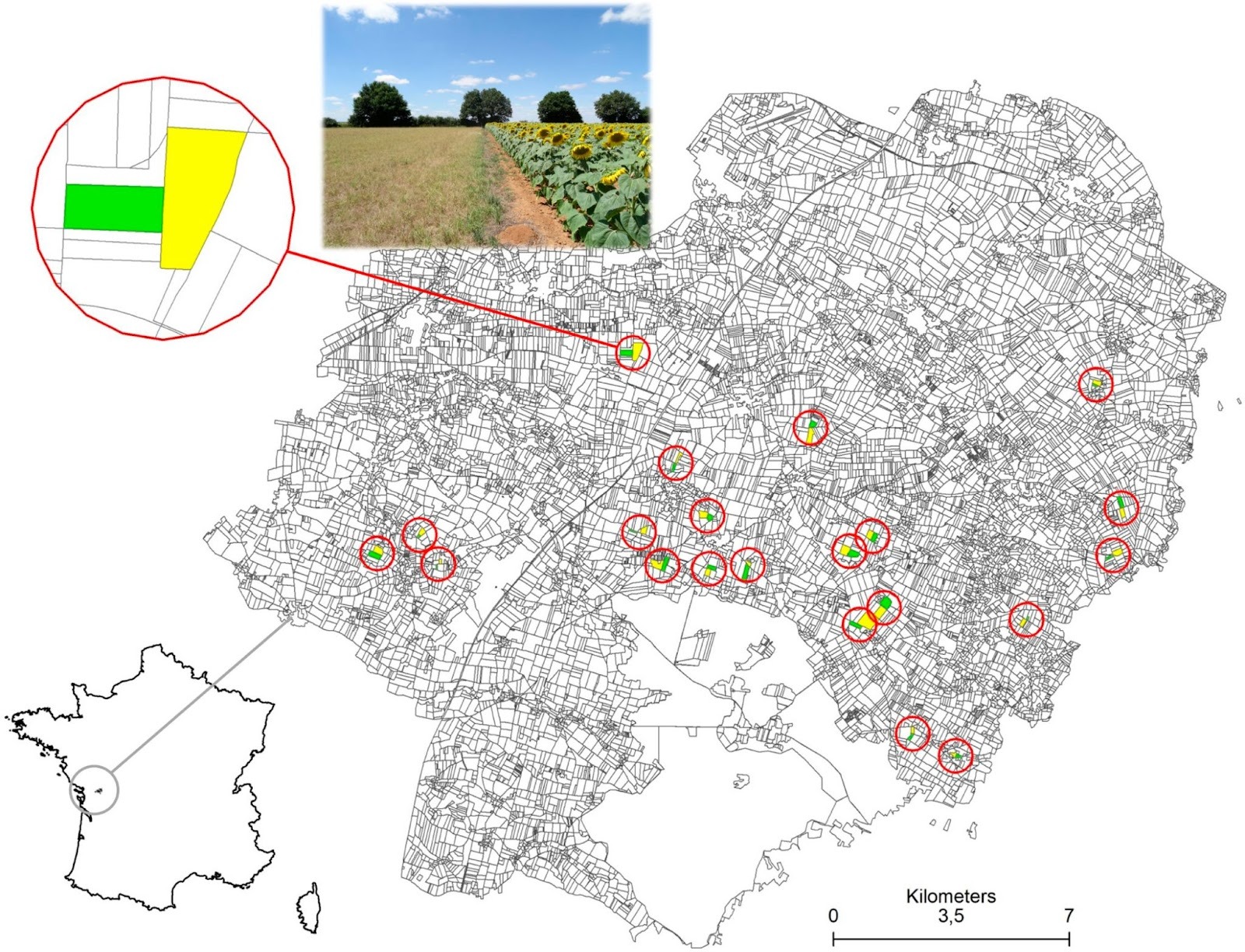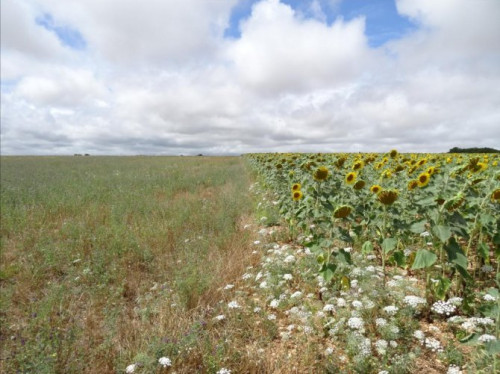SHOWCASE partners from Wageningen University, the University of Natural Resources and Life Sciences in Vienna, the Spanish National Research Council, and the French National Centre for Scientific Research published a co-funded study in the scientific journal PNAS, analysing the ecological, agronomic, and economic implications of biodiversity-friendly farming practices in an intensive grassland-sunflower system in Southwest France. Previous studies provide contrasting evidence when examining cost-benefit trade-offs regarding biodiversity management, and it is unclear whether the conservation of rare species, the delivery of ecosystem services, and economic benefits can align. The study aims to fill that research gap by testing the overall impact of managing for ecosystem services with a focus on pollination.

Photo: Study region and experimental setup. Twenty-one pairs of grassland (green) and sunflower (yellow) fields were selected across the study region in Southwest France. Study landscapes (500 m radius around the edge between the two fields in each pair) are indicated by red circles.
The study uses several locations in the southwest of France, due to the ideal conditions in that area, to investigate biodiversity, agricultural production, and net farm profit. The scientists inventoried flower availability and wild bee diversity in twenty-one agricultural grassland plots, and they observed higher numbers of flower and bee species in the extensively managed grasslands, where harvesting was less frequent. This biodiversity-friendly practice also affected revenue in neighbouring sunflower fields, increasing it up to 17%. While reducing land-use intensity had a positive effect on sunflower pollination, this type of management reduced harvest fields, meaning the expenses related to yield reduction consistently surpassed the additional income generated from the sunflower fields. Here lies the financial pressure that farmers may face when choosing to adopt biodiversity-friendly management, despite positively impacting the environment. Therefore, the study suggests that it is essential for farmers to be rewarded financially through agri-environment schemes or private funding.
The study and some of the authors’ statements are further mentioned in a blog article published in Wageningen University & Research’s online magazine and can be found here.
Photo: One of the research sites in Southwest France (Isabelle Badenhausser). Taken from the article Higher yields of biodiversity-friendly farming do not yet outweigh costs published in Wageningen University & Research online magazine.
